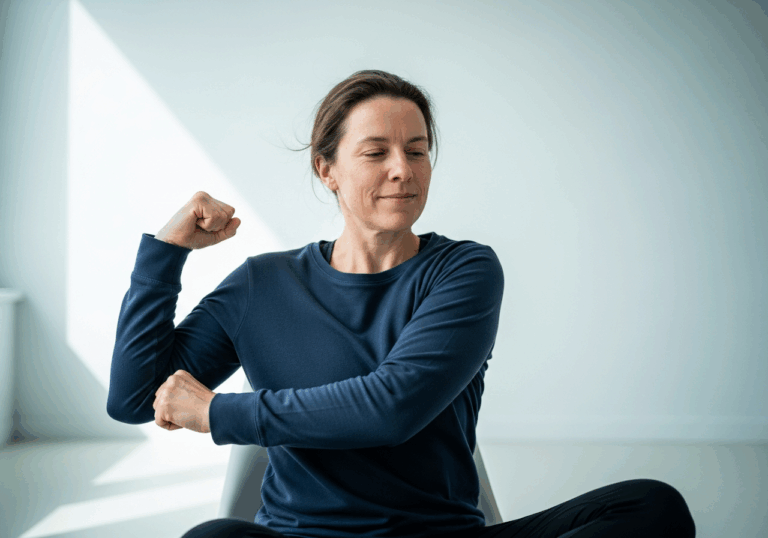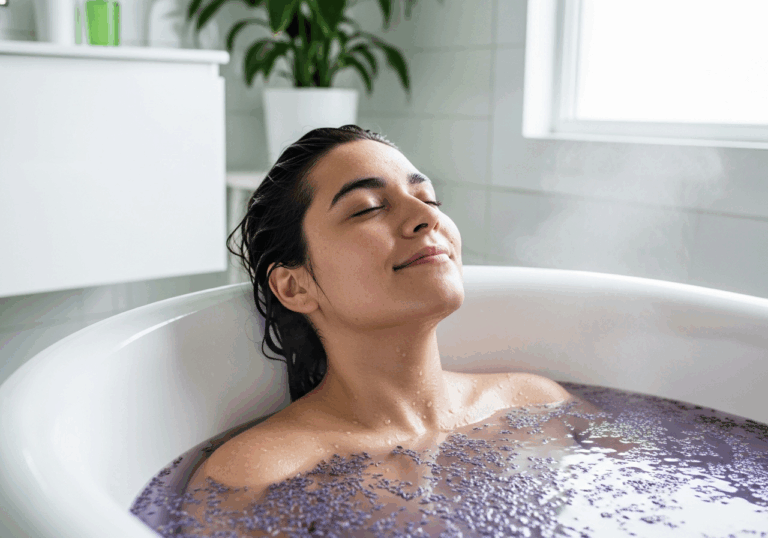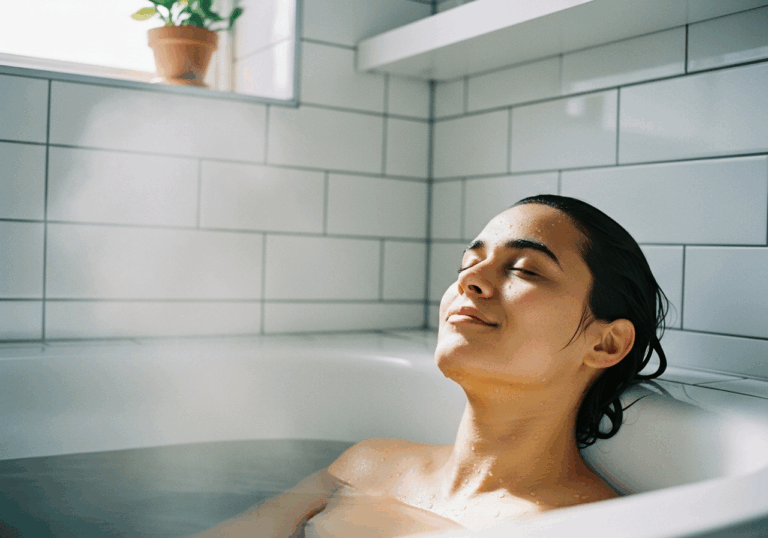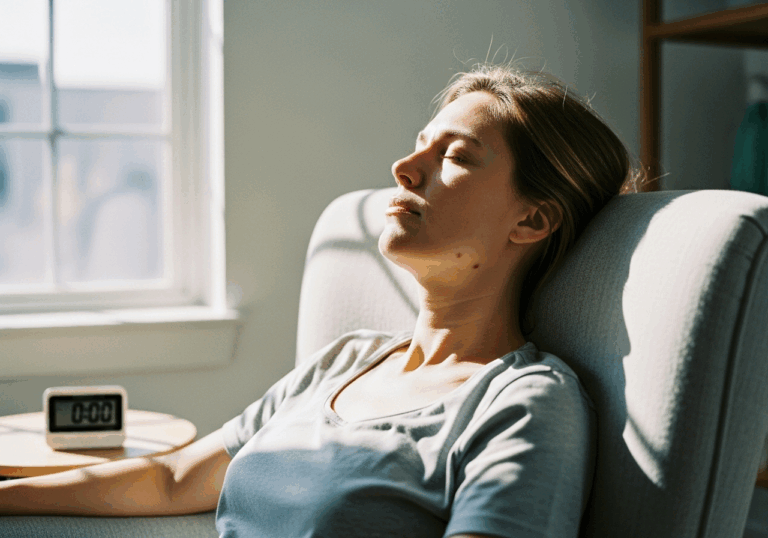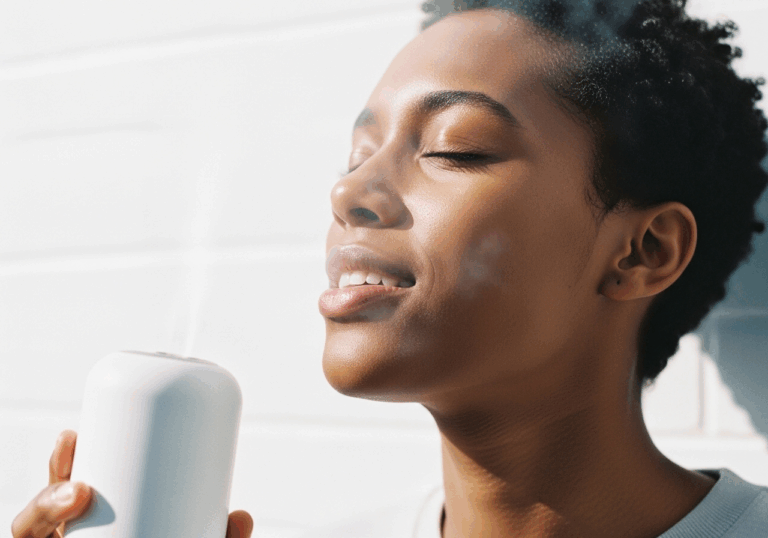Science-Backed Tips
Reduce Anxiety and Improve Sleep with PMR
PMR reduces anxiety by 15% and boosts sleep quality by 30%.
📊 Did you know?
💡 Why It Matters
1️⃣
Improved sleep quality can enhance overall emotional wellbeing, leading to better job performance.
2️⃣
Lower anxiety levels can reduce burnout rates among healthcare professionals, improving retention.
3️⃣
Enhanced mood and reduced tension can lead to better patient care and interactions.
✅ Try These Micro-Tips
🎯
Practice PMR for 20 minutes each night before bed.
🎯
Incorporate deep breathing exercises during PMR sessions for added relaxation.
🎯
Create a calming environment by dimming lights and reducing noise during PMR.
🎯
Track your anxiety and sleep quality weekly to monitor improvements.
📚 The study
The objective was clear: to determine whether nightly PMR practice could alleviate the emotional burdens faced by healthcare practitioners during the COVID-19 pandemic.
Over five consecutive nights, participants engaged in PMR, leading to remarkable results.
Anxiety levels dropped by approximately 15%, while sleep quality scores soared by over 30% compared to baseline measurements.
These findings are significant, as improved sleep quality not only enhances overall emotional wellbeing but also translates into better job performance.
Lower anxiety levels can significantly reduce burnout rates among healthcare professionals, which is crucial for improving retention in an industry that faces constant challenges.
Furthermore, enhanced mood and reduced tension contribute to better patient care and interactions, ultimately benefiting the healthcare system as a whole.
This study highlights the importance of mental health practices like PMR in supporting the emotional resilience of those on the front lines of healthcare, especially during unprecedented times.
By integrating such techniques into their routines, healthcare workers can foster a healthier work environment, leading to improved outcomes for both themselves and their patients.
❓ Frequently Asked Questions ❓
Learn more
What is PMR?
PMR stands for Progressive Muscle Relaxation, a technique that involves tensing and then relaxing different muscle groups. It is used to reduce stress and anxiety, promoting relaxation and better sleep quality.
How does PMR affect anxiety levels?
Engaging in PMR has been shown to reduce anxiety scores by approximately 15%. This reduction can lead to improved emotional wellbeing and lower burnout rates among healthcare professionals.
What improvements in sleep quality can be expected from PMR?
Practicing PMR for five consecutive nights can improve sleep quality scores by over 30%. Better sleep quality is associated with enhanced overall emotional wellbeing and job performance.
How long should PMR sessions last?
It is recommended to practice PMR for 20 minutes each night before bed. This duration allows sufficient time to relax and experience the benefits of the technique.
What additional techniques can enhance PMR?
Incorporating deep breathing exercises during PMR sessions can provide added relaxation. Creating a calming environment by dimming lights and reducing noise can also enhance the effectiveness of PMR.
How can I track my progress with PMR?
You can track your anxiety and sleep quality weekly to monitor improvements. Keeping a journal or using an app can help you visualize your progress over time.
Who can benefit from PMR?
Healthcare workers and anyone experiencing high levels of stress or anxiety can benefit from PMR. It is particularly useful for those looking to improve their emotional wellbeing and sleep quality.
What are the emotional benefits of practicing PMR?
Practicing PMR can lead to enhanced mood and reduced tension. These emotional benefits can improve interactions with patients and overall job performance.
Is PMR effective for everyone?
While PMR is beneficial for many, individual results may vary based on personal circumstances and commitment to the practice. It is important to find a relaxation technique that works best for you.
How quickly can I expect to see results from PMR?
Many individuals report improvements in anxiety and sleep quality within just five consecutive nights of practicing PMR. Consistent practice is key to achieving and maintaining these benefits.
